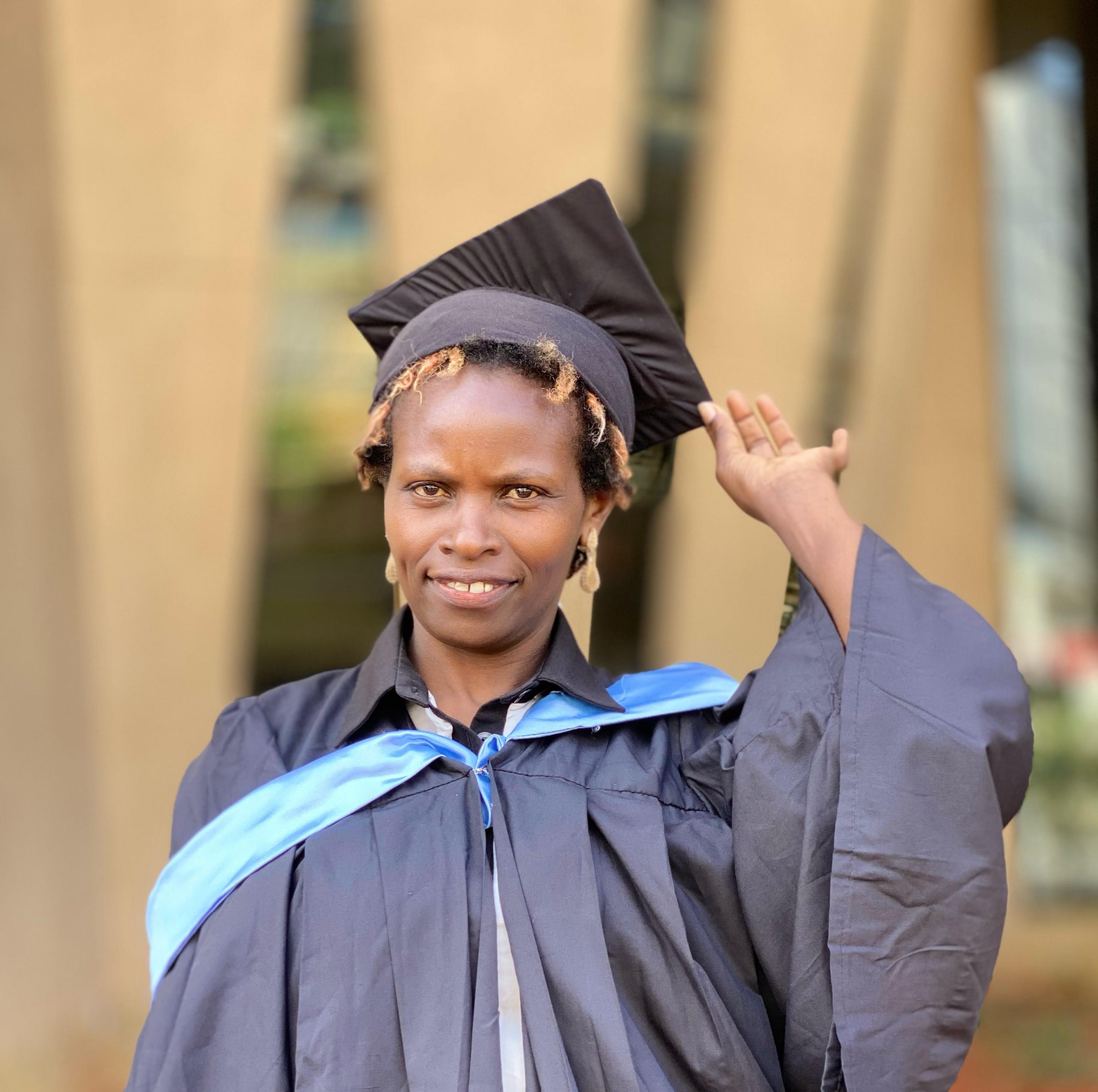Nashipae sat at Dr. Kiambo’s clinic, lost in thought. She was horrified by what was about to happen. The last jab was painful, the capsules nauseating.
She looked across from her seat to where her two co-wives sat. She was the youngest of the pack. Naserian was the eldest, while Naiseae was the second. There was no telling whether Nashipae would be the last. They looked pensive. She had no doubt that they had questions too. They had no idea why they were there, but there was a pattern. Every time Lekishon would take cows to the slaughterhouse in Kiserian town for sale, they would soon after be required to visit the doctor for this treatment or the other.
More Than a Reality, Our Reality – A Creative Nonfiction by Akoth Otieno, Kenya
After every boom from the cattle sales, the randy Lekishon would patronize the town’s hotels and bars until his proceeds were nearly exhausted. Twilight women were a high priority on his menu. At the end of the few days, he would spend club-hoping, there would be syphilis, gonorrhea, or some other sexually transmitted ailment. There could also have been HIV, but he said not to be tested for that. He paid handsomely for it. Kiambo became his partner in the crime of not only exposing his wives to potentially fatal infections but also the right to know their predicament. It was an unspoken agreement between the two to scratch each other’s back at the expense of the naïve women whose ignorance became the bliss of the two rogues.
Lekishon’s trusted doctor was keen to advise him each time that if he was to heal, his wives should be treated as well. That was how the three women found themselves at Dr. Kiambo’s every four months or so. The only information they had was that they were being treated for what their illiterate husband referred to as mugonjwa ya wanawake (The sickness of women). None of them would dare question Lekishon’s orders, not even Naserian, the eldest, who was accorded certain privileges by traditions as the first wife. Lekishon was the violent type, and the three had long learned to steer clear of his anger. He never once allowed for dialogue in matters. He gave orders and expected them to be followed without questions or debate.
When A Grandmother Dies – A Creative Nonfiction by Winnie Wekesa, Kenya
Nashipae thought of the hassle she had had to go through, as she waited for her turn to see the doctor.
There was the denial to have an education. The genital mutilation at only nine, and how the excessive bleeding nearly killed her had it not been for a couple of doctors from Medicin San Frontieres who had put up free camps at their village at the time. The being married off to Mzee Lekishon at only ten!
Now at seventeen, a year below her age of consent, she was not only a mother of five but had been treated for more ailments than her first nine years of life before she got married. This was pretty much the norm in her neighbourhood which was tucked so far away from civilization in the depths of Maasai land. It was the way of life and only a few were bold enough to deviate. Her father did not try—Lekishon would definitely not—maybe she could change the narrative if she tried.
She decided that she should consider running off to the safe house that Njeeri, the social worker, had suggested to her. That way, she would be able to change the trajectory of her life – at least for her children! ‘Yes, I have to.’
“Naishipae Lekishon,” Kiambo called out her name.
As she entered the doctor’s room for the jab that day, she knew she would do it!
“Nashipae, nahitaji kufanya kipimo cha damu na mkojo” (Nashipae, I need your blood and urine samples for tests) Kiambo asked her without even bothering to explain to her the reason for her visit.
“Kwa nini napima mimi?”(Why do you require them?) Nashipae asked in broken Swahili, sending a shock wave in Kiambo’s system as he was not used to her being inquisitive.
What he did not know was that her resolve for change began then.
 Beth Ruga is a writer who has co-authored two anthologies. She is passionate about using her writing to highlight issues that negatively affect women, children, and marginalised individuals in the African context. Additionally, she enjoys incorporating her native language, Gikuyu, into her writing, providing a significant dose of it without requiring translation. One of her anthologies, “Women of the Light,” serves as a charity work aimed at providing bursaries for bright and needy students in her former high school. Currently, Beth is finalising a novella centred around the theme of HIV/AIDS, which poses a significant threat of resurgence through new infections among individuals aged 15 to 29, according to statistics. In her spare time, Beth entertains her audience on Facebook with her humorous side. She holds a degree in Creative Writing from Alsa University in Ghana and is an Art in Medicine Fellow.
Beth Ruga is a writer who has co-authored two anthologies. She is passionate about using her writing to highlight issues that negatively affect women, children, and marginalised individuals in the African context. Additionally, she enjoys incorporating her native language, Gikuyu, into her writing, providing a significant dose of it without requiring translation. One of her anthologies, “Women of the Light,” serves as a charity work aimed at providing bursaries for bright and needy students in her former high school. Currently, Beth is finalising a novella centred around the theme of HIV/AIDS, which poses a significant threat of resurgence through new infections among individuals aged 15 to 29, according to statistics. In her spare time, Beth entertains her audience on Facebook with her humorous side. She holds a degree in Creative Writing from Alsa University in Ghana and is an Art in Medicine Fellow.







